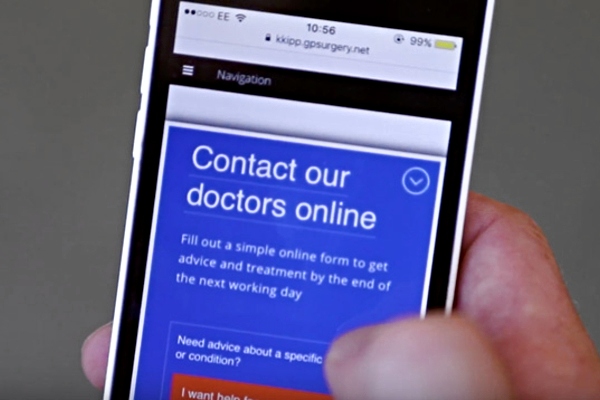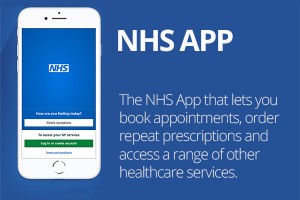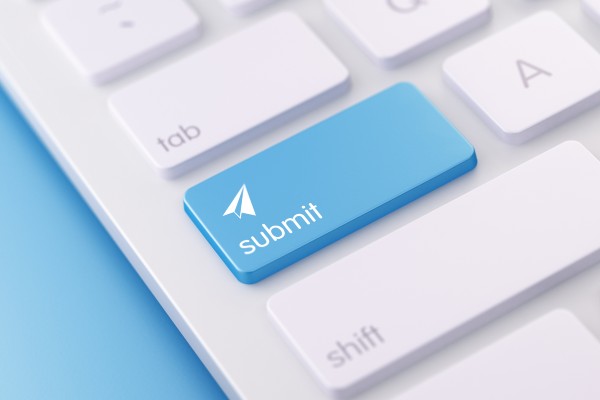Suggestions and Complaints
All the doctors, nurses, and staff in the practice work hard to ensure that everyone receives a high standard of care. We realise that occasionally things do not go as smoothly as we would like.
If you feel this has happened to you, please contact the Practice Manager in writing with details (feedback/complaint forms are available online and in the waiting area). We endeavour to offer the best service we can and will attempt to rectify any issues you raise with the surgery.
.jpg)
Making a Complaint
We make every effort to give the best service possible to everyone who attends our practice.
However, we are aware that things can go wrong resulting in a patient feeling that they have a genuine cause for complaint. If this is so, we would wish for the matter to be concluded/ addressed as promptly, and as amicably, as possible.
Simply contact the Practice Manager and they will set all the necessary wheels in motion to address the issue(s) raised. You can book an appointment with the Practice Manager, either face-to-face or telephone at an agreeable time for all parties to discuss your concerns.
Complaints Procedure
Introduction
This procedure sets out the Practice’s approach to the handling of complaints and is intended as an internal guide that should be made readily available to all staff, also a summary setting out the approach to complaint handling should be available at reception for any patient requesting a copy.
Policy
The Practice will take reasonable steps to ensure that patients are aware of:
- The complaints procedure.
- The time limit for resolution.
- How it will be dealt with?
- Who will deal with it?
- Lead GP handling complaints.
- Their right of appeal
- Further action they can take if not satisfied.
- The fact that any issues will not affect any ongoing treatment from the surgery, and they will continue to be treated.
Procedure
Receiving of complaints
The Practice may receive a complaint made by, or (with his/her consent) on behalf of a patient, or former patient, who is receiving or has received treatment at the Practice, or:
(a) where the patient is a child:
- by either parent or in the absence of both parents, the guardian or other adult who has care of the child.
- by a person duly authorised by a local authority to whose care the child has been committed under the provisions of the Children Act 1989.
- by a person duly authorised by a voluntary organisation by which the child is being accommodated.
(b) where the patient is incapable of making a complaint, by a relative or other adult who has an interest in his/her welfare.
Timescale for making a complaint.
The time constraint for bringing a complaint is 12 months from the occurrence giving rise to the complaint or 12 months from the time that the complainant becomes aware of the matter about which they wish to complain. If, however, there are good reasons for a complaint not being made within the timescale detailed above, consideration may be afforded to investigating the complaint if it is still feasible to investigate the complaint effectively and fairly.
Should any doubt arise, further guidance can be sought from the ICB.
Complaints Handling
The Practice Manager is responsible for the operation of the complaint’s procedure and the investigation of complaints and for ensuring that action is taken considering the outcome of any investigation. They are the Practice Complaints Officer.
Complaints may be received either verbally, in writing or via the Lea Surgery email using our secure online form and must be forwarded to the Practice Manager (or Dr A Goel if they are unavailable).
Action upon receipt of a complaint
- It is always better to try and deal with the complaint at the earliest opportunity and often it can be addressed and concluded at that point.
- If it is not possible or the outcome is not satisfactory the patient should be asked to put it in writing. This ensures that each side is aware of the issues for resolution. If the patient does refuse to put it in writing, then the surgery should put it in writing and check that the patient is happy with the details of the complaint.
- On receipt of a written complaint, an acknowledgement should be sent within three working days of the complaint being received. At the same time, a copy of the Complaint Process Leaflet will be sent to the patient explaining the process.
- A full investigation should take place with written notes and a log of progress.
- It may be that outside sources will need to be contacted and if that is the case then a patient consent form will need to be signed to make such a request.
Persistent and unreasonable complaints
Where a complainant becomes aggressive or, despite effective complaint handling, unreasonable or vexatious in their promotion of the complaint, some or all of the following formal provisions will apply and will be communicated to the patient:
- Advice will be sought from the ICB before any acknowledgement of a persistent, unreasonable or vexatious complainant.
- The complaint will be managed by one named individual at a senior level who will be the only contact for the patient.
- Contact will be limited to one method only (e.g. in writing)
- Place a time limit on each contact.
- The number of contacts in a period will be restricted.
- A witness will be present for all contacts.
- Repeated complaints about the same issue will be refused.
- Only acknowledge correspondence regarding a closed matter, not respond to it
- Set behaviour standards.
- Return irrelevant documentation.
- Keep detailed records.
Final Response
This will include:
- A clear statement of the issues, investigations and findings, giving clear evidence-based reasons for decisions if appropriate.
- Where errors have occurred, explain these fully and state what will be done to put this right, or prevent repetition.
- A focus on fair and proportionate outcomes for the patient, including any remedial action or compensation.
- A clear statement that the response is the final one, or that further action or reports will be sent later.
- An apology or explanation as appropriate
- A statement of the right to escalate the complaint, together with the relevant contact detail
- It should also advise on the next step in the process if the complainant is still not satisfied. That would normally be an offer of a meeting with the Lead GP and Practice Manager to try further reconciliation.
- After that, the patient can contact the local PALS (Patient Advisory Liaison Service) which would arbitrate between both sides to seek a mutual agreement. This often takes time but can be very helpful to have a third person review
- If at that point resolution is still not achieved, then either side can refer the matter to the Health Commissioner
Annual Review of Complaints
The practice will establish an annual complaints report, incorporating a review of complaints received, along with any learning issues or changes to procedures which have arisen. This report is to be made available to any person who requests it and may form part of the Freedom of Information Act Publication Scheme [*]
This will include:
- Statistics on the number of complaints received.
- Justified/unjustified analysis.
- Known referrals to the Ombudsman.
- Subject matter/categorisation / clinical care
- Learning points
- Methods of complaints management
- Any changes to procedure, policies or care which have resulted.
Confidentiality
All complaints must be treated in the strictest confidence.
Where the investigation of the complaint requires consideration of the patient's medical records, the Complaints Manager must inform the patient or person acting on his/her behalf if the investigation will involve the disclosure of information contained in those records to a person other than the practice or an employee of the practice.
The Practice must keep a record of all complaints and copies of all correspondence relating to complaints, but such records must be kept separate from patients' medical records.
Additional Information:
Comments or complaints which cannot be resolved locally with the Practice Manager can be directed to:
NHS Commissioning Board
P O Box 16736
Redditch
B97 9PT
Telephone: 020 8221 5750
Email: nelondonicb.complaints@nhs.net
In writing:
Complaints Department
NHS North East London
4th Floor – Unex Tower
5 Station Street
London E15 1DA
Independent Advice and Advocacy Support:
The Hackney Advocacy Service provides this service. You can contact them by:
Telephone: 0300 7900 559
Email: Hackneyadvocacy@rethink.org
There is also an option for online referrals.
We are obliged to let you know that you have the right to take outstanding concerns to the Parliamentary & Health Service Ombudsman who can be contacted at:
Parliamentary & Health Service Ombudsman
Millbank Tower
Millbank
London
SW1P 4QP
Telephone: 0345 0154033
Email: phso.enquiries@ombudsman.org.uk
Fax: 0300 061 4000
We are continually striving to improve our service.
Any helpful suggestions would be much appreciated, and a suggestion box is in the waiting area.












